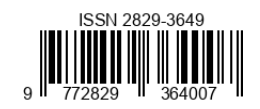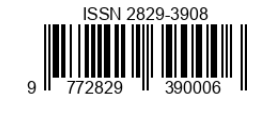Juridical Analysis of the Duality of Cryptocurrency Status as a Payment Instrument and Investment Commodity in Indonesian Regulation
DOI:
https://doi.org/10.56910/literacy.v4i1.1998Keywords:
Cryptocurrency, Indonesia, Investment, Legal Certainty, Means of PaymentAbstract
Cryptocurrency has emerged as a global innovation since the launch of Bitcoin in 2009, underpinned by blockchain technology that offers enhanced efficiency and transparency. Despite its potential, cryptocurrency presents complex legal challenges, particularly concerning its regulatory status. In Indonesia, cryptocurrency faces a dual regulatory framework: it is prohibited as a means of payment by Bank Indonesia pursuant to Law No. 7 of 2011 on Currency, yet simultaneously recognized as a tradable investment commodity by the Commodity Futures Trading Regulatory Agency (Bappebti). This study aims to analyze the implications of this duality for Indonesia’s national regulatory system. Using normative legal research and a statutory approach, the study reveals significant legal uncertainty arising from institutional regulatory inconsistencies. Such uncertainty may impede innovation and compromise consumer protection. Therefore, regulatory harmonization is essential to ensure legal certainty and adaptability, drawing on the theories of legal certainty and progressive law.
References
Afrizal, A., Marliyah, M., & Fuadi, F., “Analisis Terhadap Cryptocurrency (Perspektif Mata Uang, Hukum, Ekonomi Dan Syariah),” E-Mabis: Jurnal Ekonomi Manajemen dan Bisnis, vol. 22, no. 2, pp. 13–41, 2021. [Online]. Available: https://doi.org/10.29103/e-mabis.v22i2.689
Amerika Serikat, “U.S. Securities and Exchange Commission (SEC) and the Commodity Futures Trading Commission (CFTC): Cryptocurrency Regulation Overview,” 2020. [Online]. Available: https://www.sec.gov
AR, M. H., et al., “Kewenangan Dan Tanggung Jawab Pemerintah Dalam Hukum Tatanegara,” Hutanasyah: Jurnal Hukum Tata Negara, vol. 3, no. 2, pp. 83–103, 2025. [Online]. Available: https://doi.org/10.37092/hutanasyah.v3i2.1004
Ardiyansyah, T., Saputra, I., Kinanti, T., Rahmanda, K. A., & Hasan, A., “Analisis penggunaan Bitcoin sebagai alat tukar di Indonesia menurut pendapat tokoh Islam,” Sosio e-Kons, vol. 16, no. 1, pp. 9–19, 2024. [Online]. Available: http://dx.doi.org/10.30998/sosioekons.v16i1.21707
Arner, D. W., Barberis, J., & Buckley, R. P., “Fintech, RegTech, and the Reconceptualization of Financial Regulation,” North Carolina Law Review, vol. 96, no. 4, pp. 1353–1412, 2017.
Arner, D. W., Barberis, J., & Buckley, R. P., Blockchain and Cryptocurrency: The New Frontier of Financial Technology. Oxford University Press, 2020.
Arner, D. W., Zohar, E., & Barberis, J., “Fintech, RegTech, and the Reconceptualization of Financial Regulation,” North Carolina Law Review, vol. 96, no. 4, pp. 1353–1412, 2017.
Arner, D. W., Zohar, E., & Barberis, J., Regulating Financial Technologies: The Case of Cryptocurrency. Oxford University Press, 2020.
Bank Indonesia, Peraturan Bank Indonesia Nomor 19/12/PBI/2017 tentang Penyelenggaraan Sistem Pembayaran, 2017. [Online]. Available: https://www.bi.go.id
Bank Indonesia, Peraturan Bank Indonesia Nomor 23/6/PBI/2021 tentang Penyedia Jasa Sistem Pembayaran, 2021.
Bappebti, “Regulasi Perdagangan Cryptocurrency di Indonesia,” 2021. [Online]. Available: https://www.bappebti.go.id
Bappebti, Peraturan Bappebti Nomor 13 Tahun 2022 tentang Perubahan atas Peraturan Kepala Bappebti Nomor 7 Tahun 2020 tentang Penetapan Daftar Aset Kripto yang Dapat Diperdagangkan di Pasar Fisik Aset Kripto, 2022. [Online]. Available: https://www.bappebti.go.id
Chohan, U. W., Blockchain and Cryptocurrencies: Legal and Regulatory Issues. Palgrave Macmillan, 2020.
Cohen, B. H., & Kroszner, R. S., “Cryptocurrency and the Legal System: A Legal Perspective,” Journal of Financial Regulation, vol. 24, no. 3, pp. 445–462, 2018.
FATF, The FATF’s Role in Combatting Money Laundering and Terrorist Financing in the Cryptocurrency Market, 2020.
Gordon, W. J., & Lohr, S., “The Regulatory Landscape of Cryptocurrency Markets: Risk Management and Future Directions,” Journal of Financial Regulation and Compliance, vol. 29, no. 2, pp. 125–145, 2021.
Hassan, M. K., “Fintech and Blockchain in Singapore: Regulatory Challenges and Opportunities,” Journal of Financial Technology, vol. 5, no. 2, pp. 45–58, 2019.
Hirad, A. S., “Cryptocurrency Regulation and the Changing Landscape of Digital Payments,” International Journal of Financial Studies, vol. 6, no. 1, pp. 44–58, 2021.
Hirad, A. S., “Market Manipulation and Cryptocurrency Regulation: Legal Perspectives and Solutions,” Financial Markets Review, vol. 18, no. 4, pp. 274–300, 2021.
Jepang, “Japanese Financial Services Agency (FSA) Cryptocurrency Regulation,” 2017. [Online]. Available: https://www.fsa.go.jp
Kurniawan, H., “Crypto Regulation in Indonesia: Legal Challenges and Prospects,” Indonesian Law Review, vol. 3, no. 4, pp. 212–227, 2021.
Laksito, J., Karisma, D., & Hartono, B., “Tantangan Hukum dalam Regulasi Transaksi Kripto di Indonesia Antara Peluang dan Risiko,” Jaksa: Jurnal Kajian Ilmu Hukum dan Politik, vol. 2, no. 4, pp. 57–69, 2024. [Online]. Available: https://doi.org/10.51903/jaksa.v2i4.2269
Monetary Authority of Singapore, Payment Services Act 2019, 2020. [Online]. Available: https://www.mas.gov.sg
Nakamoto, S., “Bitcoin: A Peer-to-Peer Electronic Cash System,” 2021. [Online]. Available: https://bitcoin.org/bitcoin.pdf
OECD, OECD Blockchain Policy Centre – Regulatory Approaches to Crypto-Assets, 2020.
Pereira, A., & Nguyen, P., “The Future of Digital Payment Systems: Blockchain and Cryptocurrency,” Journal of Digital Economy, vol. 8, no. 3, pp. 110–122, 2021.
Rahardjo, S., Hukum Progresif: Menuju Pembaruan Hukum Indonesia. Jakarta: Penerbit Buku Kompas, 2001.
Shapira, M., & Kuo, C., “Cryptocurrency Regulations and the Risks of Regulatory Arbitrage,” 2018.
Smith, A. J., “Global Cryptocurrencies Regulation: A Comparative Analysis,” Harvard Law Review, vol. 133, no. 7, pp. 1637–1655, 2020.
Songtinus, S., Ramlan, R., & Siregar, M., “Juridical Analysis Of The Use Of Cryptocurrencies As Futures Trading Commodities According To Positive Law In Indonesia,” JHR (Jurnal Hukum Replik), vol. 11, no. 2, pp. 233–258, 2023. [Online]. Available: http://dx.doi.org/10.31000/jhr.v11i2.8975
Sullivan, S., & Heller, E., “Regulation of Cryptocurrency: A Global Perspective,” Harvard Law Review, vol. 134, no. 9, pp. 1901–1922, 2021.
Tanaya, F. C., “Regulasi Hukum Cryptocurrency dan Pencegahan Tindak Penyalahgunaannya di Indonesia,” Jurnal Kertha Semaya, vol. 12, no. 6, pp. 1375–1386, 2024.
Undang-Undang Republik Indonesia Nomor 7 Tahun 2011 tentang Mata Uang, 2011. [Online]. Available: https://www.djpp.kemenkumham.go.id
Van Hoecke, M., Law as Communication. Hart Publishing, 2004.
World Economic Forum, “The Impact of Cryptocurrency on Global Financial Systems,” 2020. [Online]. Available: https://www.weforum.org/agenda/2020/05/cryptocurrency-regulation-finance/
Zetzsche, D. A., Buckley, R. P., & Arner, D. W., “Decentralized Finance (DeFi),” Journal of Financial Regulation, vol. 6, no. 2, pp. 172–203, 2020.
Zohar, E., The Legal and Regulatory Framework for Cryptocurrency: Global Perspectives. Springer, 2020.
Downloads
Published
How to Cite
Issue
Section
License
Copyright (c) 2025 LITERACY : International Scientific Journals of Social, Education, Humanities

This work is licensed under a Creative Commons Attribution-ShareAlike 4.0 International License.







